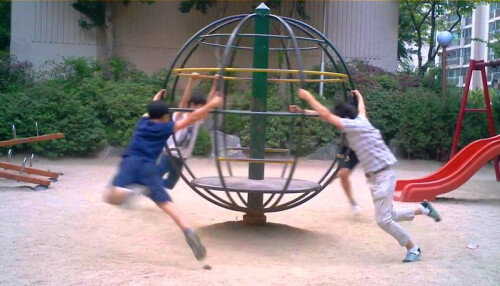Hello, everyone!
Spring is finally here, and it's a great time to get out and about.
The flowers are in full bloom here and there.
The keeper is also excited to see them.
However, due to the difference in temperature between the blooming flowers and the seasonal season
Sneeze here, sneeze there!
People with rhinitis, asthma, atopy, etc.
People suffering from allergic diseases
are also increasing..ㅠㅠ
This image does not exist.
Source: Centers for Disease Control and Prevention
The causes of allergies are still being
still being researched,
we're going to talk about a theory that's often mentioned in modern times
[the hygiene hypothesis.
The hygiene hypothesis
First proposed by Dr. David Strachan in the UK in 1989
The hypothesis that the immune system is underdeveloped due to excessive hygiene in modern society.
It states that childhood experiences with infections help develop the immune system.
We all had similar experiences as children (maybe even now...?!!)
Bringing unwashed hands to your mouth,
picking up a cracker that fell on the ground,
playing outside in the dirt without a care in the world.
Experiences of being exposed to unhygienic environments.
Maybe this is good for immunity...????!
You can gain immunity through these experiences.
It is relatively difficult to increase immunity due to lack of experience.
As a baby, we get passive immunity through breast milk, vaccines, immunizations, etc.
and active immunity through experience fighting off germs.
(There's more to it, of course, but that's a quick overview!)
The hygiene hypothesis emphasizes the lost opportunity aspect of active immunity.
Background on the Hygiene Hypothesis
First, the higher incidence of allergies and autoimmune diseases in developed countries
Autoimmune diseases have been nicknamed “developed world diseases” because the incidence and types of autoimmune diseases are much higher in developed countries than in developing countries.
The theory is that the developed world is too clean compared to the developing world, so there are fewer opportunities for infections and therefore weaker immunity.
To summarize the key points of the hygiene hypothesis
First, the immune system doesn't work as well with less exposure to microbes.
Second, infections experienced in childhood help develop the immune system.
(An example of this is the difference in hepatitis A antibody levels between the dirt playground generation and the modern playground generation).
Third, excessive cleanliness can be detrimental to your health.
Thus, by the hygiene hypothesis...
Maintaining an adequate level of hygiene is important for the prevention of immune diseases,
it is necessary to provide opportunities for microbial exposure during childhood,
avoiding excessive use of sanitizers or cleaning products is recommended.
But remember.
I'm not suggesting that you expose children to dirty environments on purpose!
Even if you don't intentionally provide a bad environment.
they are exposed to enough unhygienic conditions in their daily lives.
What we need to watch out for is !!
안녕하세요, 여러분!
완연한 봄이 찾아오면서 여기저기 나들이를 가기 좋은 나날인데요.
여기도 활짝, 저기도 활짝 편 꽃들을 보노라면
지킴이도 왠지 가슴 설레는 나날이랍니다.
하지만, 활짝 편 꽃들과 환절기의 기온차로 인해서
여기서 훌쩍! 저기서 훌쩍!
비염, 천식, 아토피 등
알레르기 질환에 시달리는 사람들
또한 많아지고 있죠..ㅠㅠ
출처: 질병관리본부
알레르기의 원인에 대해 여전히
연구가 활발하게 이루어지고 있는 지금,
지킴이는 현대인들에게 종종 언급되는 이론인
[위생 가설]에 대해 얘기하려고 해요.
위생가설(hygiene hypothesis)
1989년 영국에서 데이비드 스트라찬 박사에 의해 최초로 제시된 가설
현대 사회에서 과도한 위생관리로 인해 면역 체계가 제대로 발달하지 못한다는 가설.
어린 시절의 감염 경험이 면역 체계 발달에 도움이 된다는 내용이에요.
어린 시절 다들 비슷한 경험이 있으실 거에요! (어쩌면 지금도...?!!)
안 씻은 손을 입에 가져가고,
땅에 떨어진 과자를 아무렇지 않게 툭툭 털어 먹고,
흙먼지가 휘날리지만 아랑곳 않고 밖에서 뛰어노는 등
위생적이지 않은 환경에 노출되었던 경험들.
이러한 경험을 통해서 면역을 얻을 수 있는데
경험이 부족하여 상대적으로 면역력을 높이기가 힘들다는 것이죠.
사람은 아기 때 모유, 백신, 면역 주사 등을 통한 수동 면역과
병균과 싸웠던 경험을 통한 능동 면역으로 나뉘는데
(물론, 더 자세하게 나뉘나 간략하게 설명드린겁니당!)
위생가설은 능동 면역의 기회 상실 면을 부각하고 있는 것이죠.
위생 가설의 배경
첫째, 선진국일수록 알레르기나 자가면역 질환 발병률이 높아지는 현상
자가면역질환은 '선진국 병'이라는 별명이 있을 정도로, 선진국에서 그 발병률과 종류가 개발도상국에 비해 매우 높은 수준입니다.
개발도상국에 비해 너무 깨끗하다보니 상대적으로 감염기회가 줄어 면역이 약해졌다고 보는 것이죠.
위생가설의 주요 내용을 간단히 정리하자면
첫째, 미생물에 대한 노출이 적어지면 면역 체계가 제대로 작동하지 않는다.
둘째, 어린 시절 경험한 감염이 면역 체계 발달에 도움을 준다.
(이는 흙 놀이터 세대와 신식 놀이터 세대의 A형 간염 항체 보유율 차이를 예를 들 수 있답니다.)
셋째, 과도한 청결함은 오히려 건강에 해로울 수 있다.
따라서, 위생 가설에 의해...
면역 질환 예방을 위해 적절한 수준의 위생 유지가 중요하고,
어린 시절 미생물 노출 기회를 제공하는 것이 필요하며,
과도한 살균제나 청소용품의 사용을 피하는 것이 좋다는 것이 결론이랍니다.
하지만 꼭! 명심하세요.
아이들을 더러운 환경에 일부러 노출시키라는 것이 아니랍니다!!
굳이 일부러 나쁜 환경을 제공하지 않더라도
일상 속에서 충분히 비위생에 노출되는 경험을 한답니다^^
우리가 조심해야 하는 것은
강박 수준으로 '지나치게' 위생에 대해 신경쓰는 행위인 것이죠.
손에 잡히는 물건마다 소독제를 뿌리고 닦고,
조금만 노출되었다 싶으면 손소독제를 사용하고.
특히 손소독제는 세균뿐만이 아니라 정상 상재균도 죽이므로
장기간 사용할 시 피부염 또는 습진 등의 피부병을 일으킬 수 있답니다..
물론, 위생 가설은 어디까지나 가설이며,
이를 반박하는 학자 또한 많답니다.
알레르기, 자가면역질환에 대한 연구는 여전히 지속적으로 되고 있답니다!
'과유불급過猶不及'
우리는 그저,
뭐든지 지나친 것은 이로운 결과를 가져오기 어렵다는 것을
항상 상기시키면서!!











댓글 없음:
댓글 쓰기